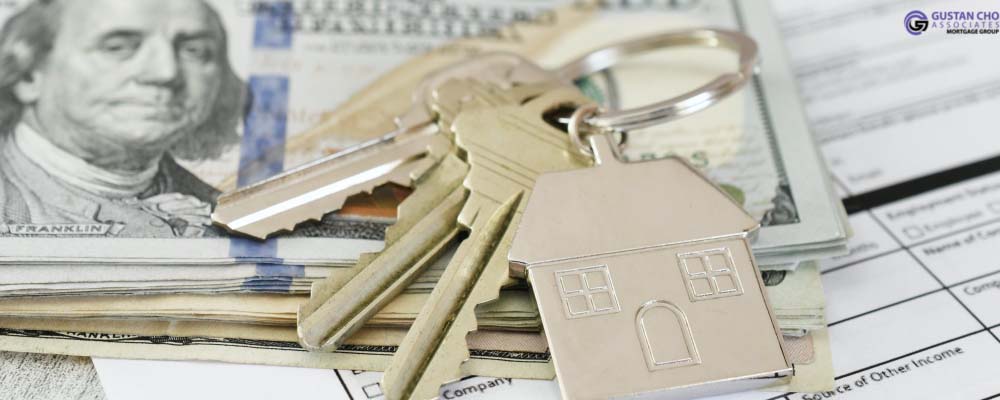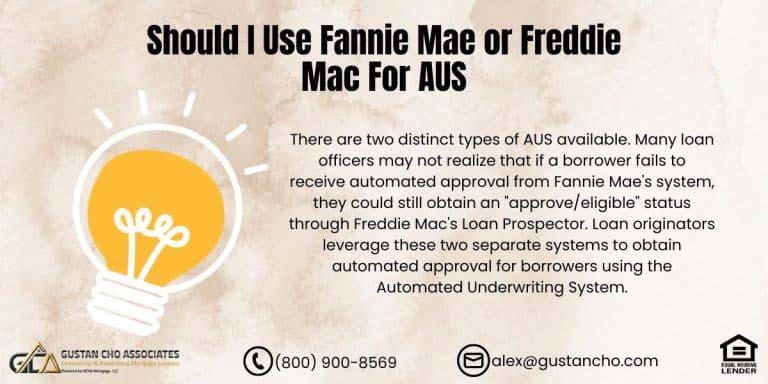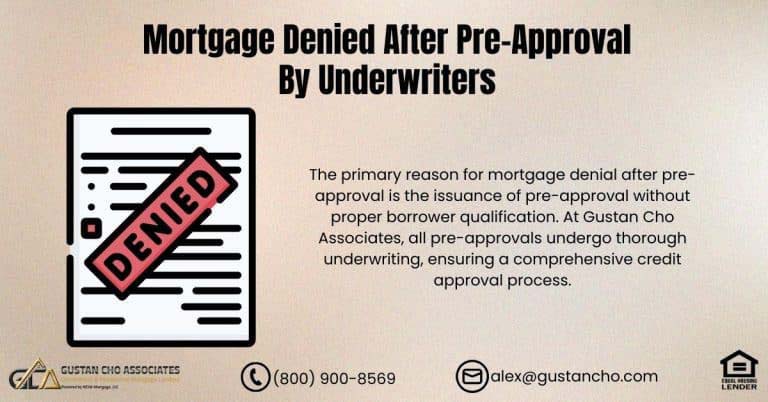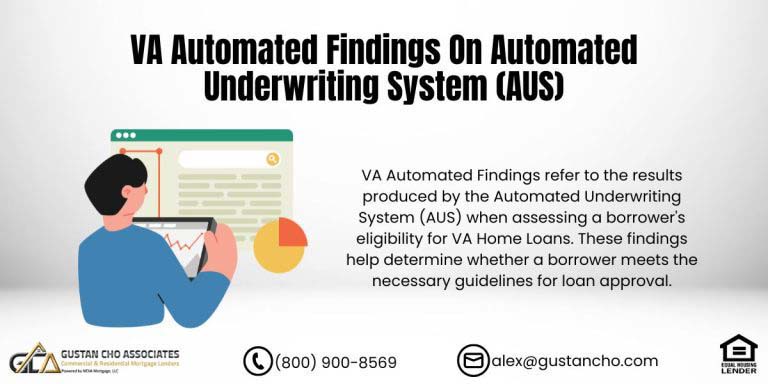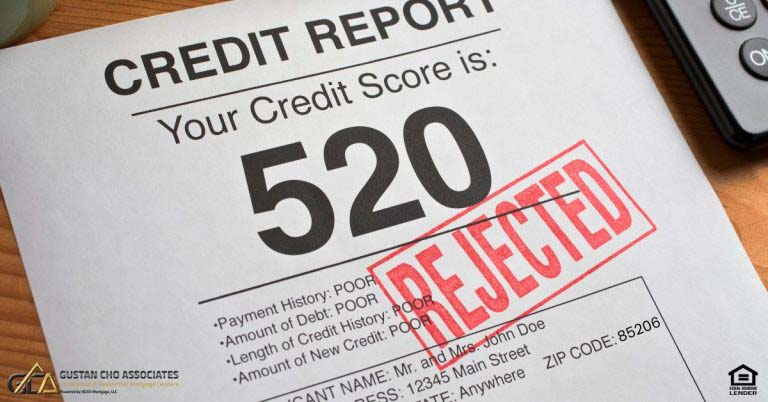In this blog, we will cover and discuss how do mortgage underwriters qualify borrowers. Credit scores and income is what determines whether a borrower meets the minimum requirements for a lender to review a mortgage application how do mortgage underwriters qualify borrowers is by reviewing all documents provided by the borrower? In this article, we will cover and discuss How do mortgage underwriters qualify borrowers and approve loans.
Borrowers Need To Meet Agency Mortgage Guidelines
Underwriters make sure that they meet all guideline requirements of the loan program. Every mortgage lender has minimum credit scores minimum for them to accept a mortgage loan application. For example, FHA has a 500 minimum credit score requirement for a mortgage loan borrower to qualify for a mortgage loan. Mortgage underwriters assess borrowers based on several key factors to determine eligibility for a home loan. Here are some of the primary considerations they take into account:
Credit Score
One of the first things underwriters look at is the borrower’s credit score. This score gives them an indication of their ability to repay the loan. A higher credit score indicates a lower risk for the lender.
Income and Employment History
Underwriters evaluate the borrower’s income, credit, and credit and employment history to ensure they have a stable source of income to make monthly mortgage payments. They typically look at the borrower’s employment status, length of employment, and consistency of income.
Debt-to-Income Ratio (DTI)
This ratio compares the borrower’s monthly debts to their gross monthly income. Underwriters want to ensure the borrower isn’t overextended and can comfortably afford the mortgage payments and other debt obligations. Typically, a lower DTI ratio is preferred.
Assets and Reserves
Underwriters may also consider the borrower’s assets and reserves, including savings, investments, and retirement accounts. These can serve as a cushion in case of financial emergencies and can indicate the borrower’s ability to weather financial challenges.
Down Payment
The down payment size can impact the borrower’s eligibility and the loan terms. A larger down payment typically signifies lower risk for the lender, which means lower rates for the borrower.
Property Appraisal
The property being purchased is also evaluated by underwriters. They assess its value to ensure it aligns with the loan amount and review the property’s condition to ensure it meets lending standards.
How Do Mortgage Underwriters Qualify Borrowers in Real Life?
Credit, income, assets, and DTI—see how your numbers stack up
How Do Mortgage Underwriters Qualify Borrowers With Overlays
Lenders have something called overlays which are their own guidelines that surpass the bare agency minimum requirements. In order to qualify for a 3.5% minimum down payment requirement, the borrower needs a minimum credit score of 580 FICO or higher. Homebuyers with credit scores between 500 and 579 can qualify for FHA loans but a 10% down payment is required.
Lender Overlays on Credit Scores
There are many lenders who require minimum credit scores of 620 or 640 FICO or higher. This is because their own FHA credit score overlays. Some lenders even require their borrowers to have credit scores of 680 FICO or higher. Lenders are allowed to have higher lending requirements than the minimum required by HUD. How Do Mortgage Underwriters Qualify Borrowers is to make sure borrowers meet all Agency Guidelines PLUS the company’s own overlays.
How Do Mortgage Underwriters Qualify Borrowers With Credit Scores And Credit Report
Mortgage underwriters are the decision-makers who decide whether to approve or deny a borrower’s mortgage application. Mortgage underwriters will look at borrowers’ credit scores. Underwriters will also thoroughly review borrowers’ credit reports. Underwriters will very carefully analyze and look to see whether the mortgage loan applicant is creditworthy.. Just because a borrower has high credit scores does not mean that the borrower is financially responsible. On the flip side, just because the borrower has low credit scores, that does not mean that the borrower is financially irresponsible.
How Do Mortgage Underwriters Qualify Borrowers With Extenuating Circumstances
There are cases where a borrower has gone through financial hardship such as periods of unemployment, divorce, death in the family, or medical issues. The mortgage underwriter will look at a ten-year window of a borrower’s credit scores and credit report as well as payment history.
How Do Mortgage Underwriters Qualify Borrowers With Imperfect Credit?
Late payments, collections, and old dings don’t always mean “no.”
How Do Mortgage Underwriters Qualify Borrowers on Credit History
If a borrower has mediocre credit scores but has had a history of consistent late payments in the past ten years, the mortgage underwriter will probably come to the conclusion that the applicant is not a financially responsible borrower. The chances are that their mortgage loan application will not get approved. However, if the mortgage loan applicant has had five years of perfect credit and two years of credit derogatory and late payments.
How Do Mortgage Underwriters Qualify Borrowers on Late Payments
Mortgage underwriters will review whether or not the borrower had a great payment history and re-established credit in the past two to three years. The mortgage underwriter will consider this particular mortgage loan applicant a genuine financially responsible mortgage applicant who has gone through a short period of hardship. Underwriters will look at whether or not the borrower has since recovered and will deem this candidate a good credit risk.
Credit Scores and Credit Report
Credit scores and credit report is used by underwriters as a measure of predicting the financial credit risk of the mortgage loan applicant. Studies prove that a person’s past credit payment behavior is a great predictor of how he or she will pay their credit obligations in the future. If a mortgage loan applicant has had a long history of not paying his or her bills on time. The chances are that they will not change this behavior in the future. The chances that this person will get a mortgage loan approval will be extremely slim.
Recent Payment History & Bank Overdrafts
Borrowers who are going to plan on getting a mortgage loan make sure to pay monthly bills on time and not have any late payments in the past 12 months. Bank overdrafts are closely scrutinized as well. Many banks and mortgage bankers will not even look at any mortgage loan applicants who have had even a single overdraft in the past twelve months. Even if the overdraft was one dollar some lenders will not approve a borrower.
Qualifying With a Mortgage Lender With No Overlays
Gustan Cho Associates empowered by NEXA Mortgage, LLC is licensed in 48 states with no lender overlays on government and conventional loans. We will accept late payments in the past 12 months if the Automated Underwriting System yields an approve/eligible. Overdrafts in the past 12 months are allowed with us as long as they can provide a good letter of explanation. Being hungover and not being able to make a payment prior to a due date is not a good letter of explanation.
Qualify and Get Pre-Approved For a Mortgage With a Lender with No Overlays
Borrowers who need to qualify for a mortgage home loan with a mortgage company with no overlays, please contact us at Gustan Cho Associates at 800-900-8569 or text us for a faster response. Over 75% of our borrowers are folks who either got a last-minute loan denial by other lenders or are stressing over the mortgage process due to being improperly issued a pre-approval. All of our pre-approvals close because all pre-approvals at Gustan Cho Associates are full credit approvals issued by our mortgage underwriters. We are available 7 days a week, on evenings, weekends, and holidays via phone or email at gcho@gustancho.com.
Related> What Do Underwriters Look For In Credit Scores And Credit Reports
Related> What If Credit Scores Changes During Mortgage Approval Process?
Want to Know Your Chances Before You Fall in Love With a Home?
We qualify you the way underwriters do, not just a quick pre-qual



